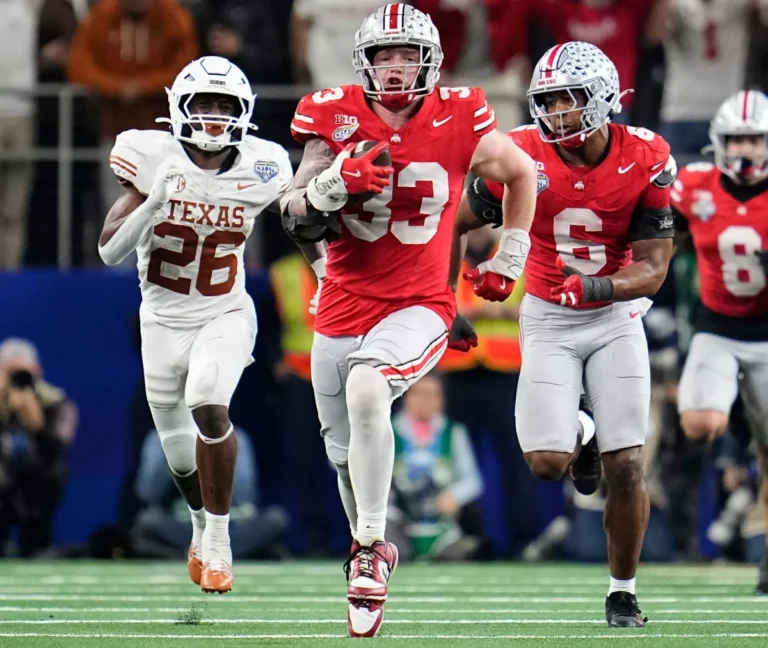Don’t think about the House vs. NCAA settlement as an instant cure for all of the issues disrupting, and in some cases swallowing, schools at the top level of college sports.
Instead, it’s more like the timeout a basketball coach is forced to take after watching his team give up six consecutive layups so he can draw up a zone defense and try to stop the bleeding. A change of strategy might work, but without a full commitment from the players in the game to execute the plan, it’s over before it begins.
In theory, the settlement is a big step in the right direction to solving issues.
It forces the wealthy, power-conference programs to directly share revenue with the athletes who help create the popularity of college football and basketball primarily, but other sports too, if the school so chooses. It sets a de facto salary cap that forces schools to prioritize not just which sports to invest in, but which athletes. It allows schools to sign enforceable, multi-year contracts that should ease at least some of the transfer madness. And it has an enforcement component that should — if it works the way it’s intended — bring name, image and likeness deals back into the realm of Caitlin Clark appearing in State Farm commercials rather than school-affiliated booster groups paying hundreds of thousands of dollars for a couple of meet-and-greets and calling it NIL.
But there’s no guarantee any of this is going to work. And the main reason is because success will require schools to do something that they’ve never done in the history of college sports: Acknowledge that the rules are in place for the common good and must be applied to everyone, including themselves.
It sounds simple. But the decades-long track record of screaming and threatening whenever the NCAA attempted to enforce penalties on rule-breakers suggests it’s going to be one of the biggest challenges in the history of the association. As one prominent athletics director said recently, speaking on the condition of anonymity because the settlement was still pending, all of the stakeholders in this — including state legislatures and booster groups constantly looking for loopholes and gray areas — must agree to be governed, or they simply won’t be.
In fact, the need for complete buy-in on policing of NIL deals and the revenue-sharing cap is so profound that the new enforcement entity being established by the Power Four conferences spent months drafting a document schools will be required to sign that prevents them from suing if they don’t like the result of their internal arbitration process. Having that final authority vested in a third party is considered crucial by the Power Four to any semblance of self-governance, a person with direct knowledge of the process told USA TODAY Sports on the condition of anonymity because they were not authorized to speak on behalf of the group.


